Utah Rental Agreement

A Utah rental agreement is a legal contract between a landlord overseeing a rental property and a tenant who wishes to use it. Utah landlord-tenant law governs these agreements; rental terms must be within the limits allowed by law.
Utah Rental Agreement Types
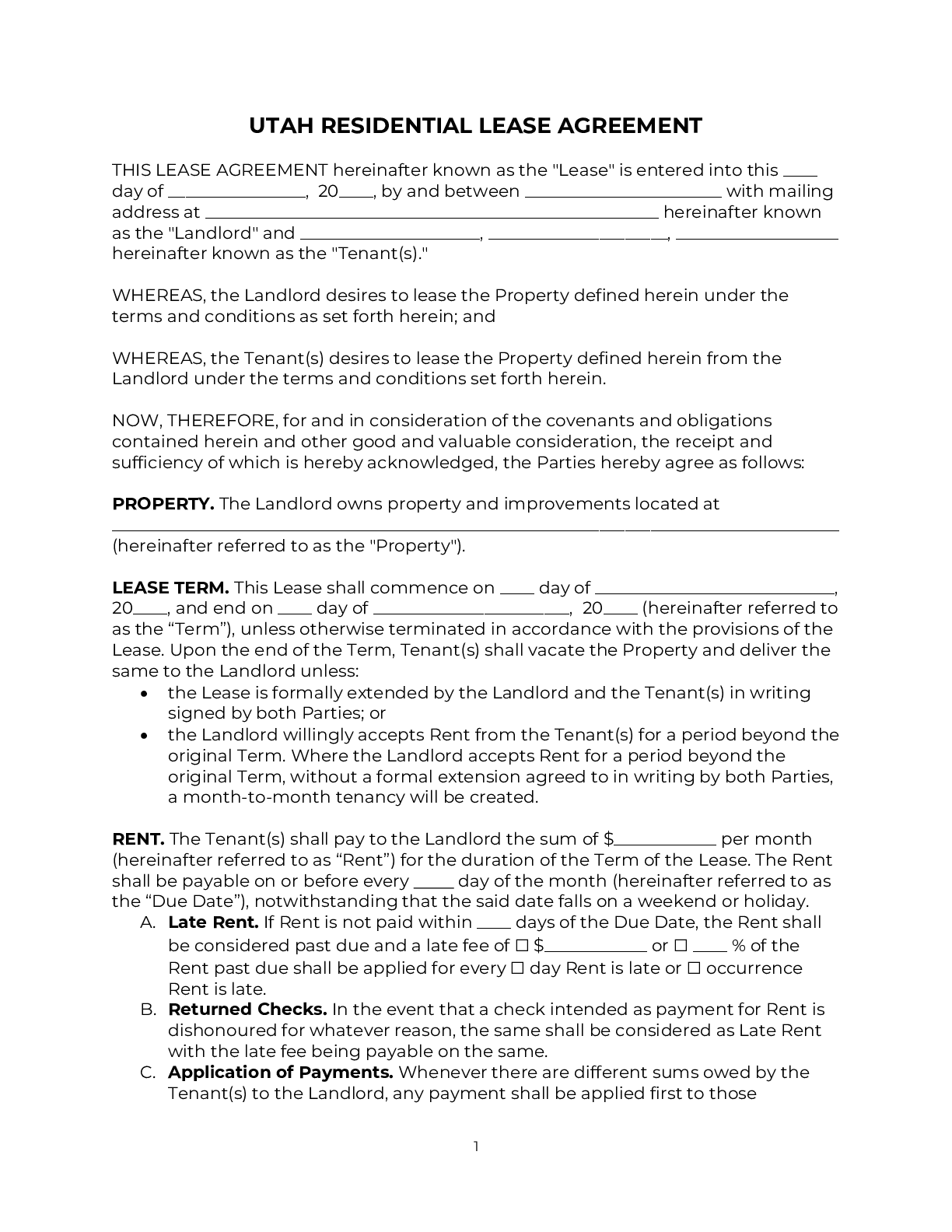
A Utah residential lease agreement (“rental agreement”) is a legal contract for a tenant to rent a residential property from a landlord, subject to terms and conditions agreed by all parties.
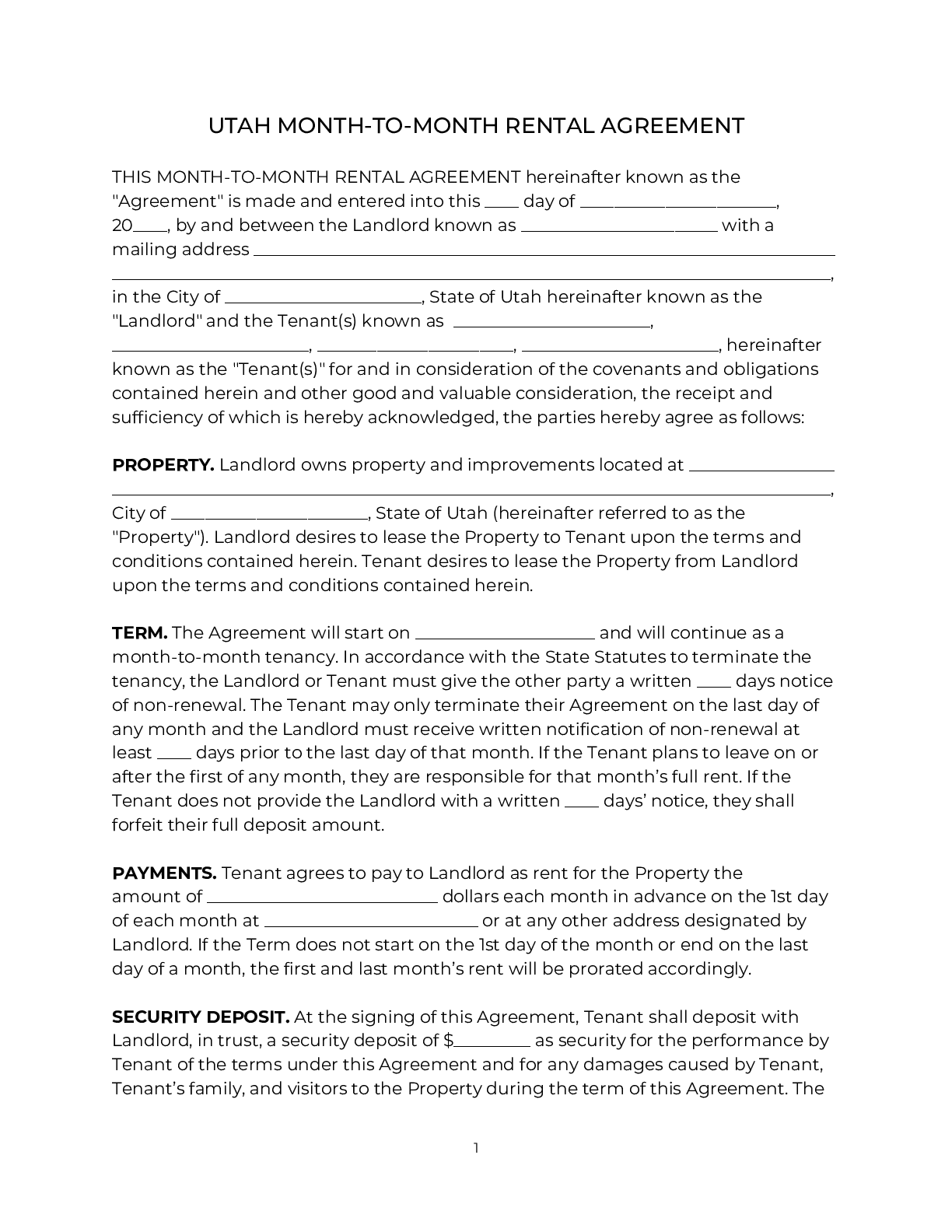
A Utah month-to-month lease agreement is a contract (not necessarily written) where a tenant rents property from a landlord. The full rental term is one month, renewable on a month-to-month basis.
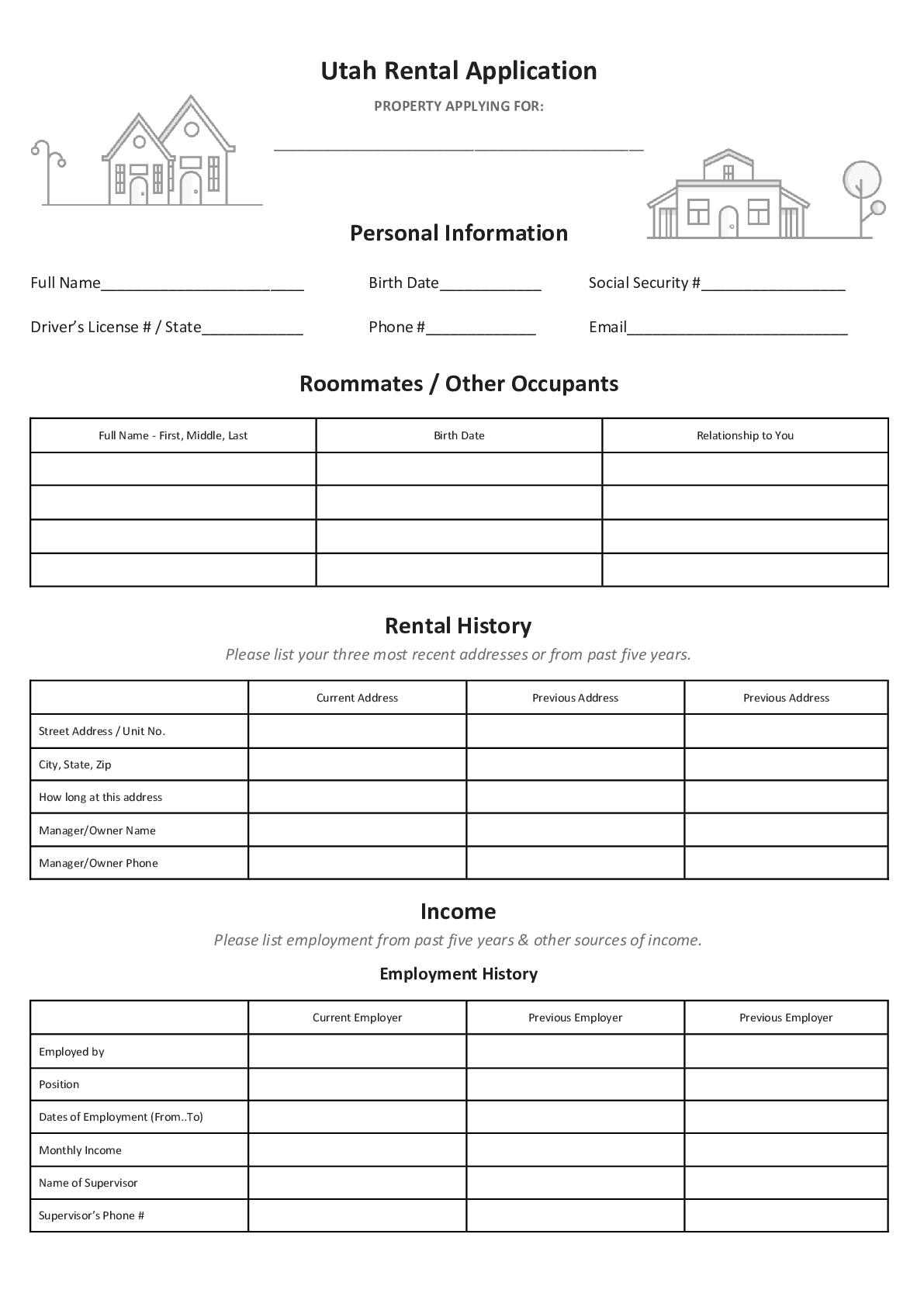
Utah landlords may use a rental application form to screen prospective tenants. A rental application collects information relating to finances, rental history, and past evictions.
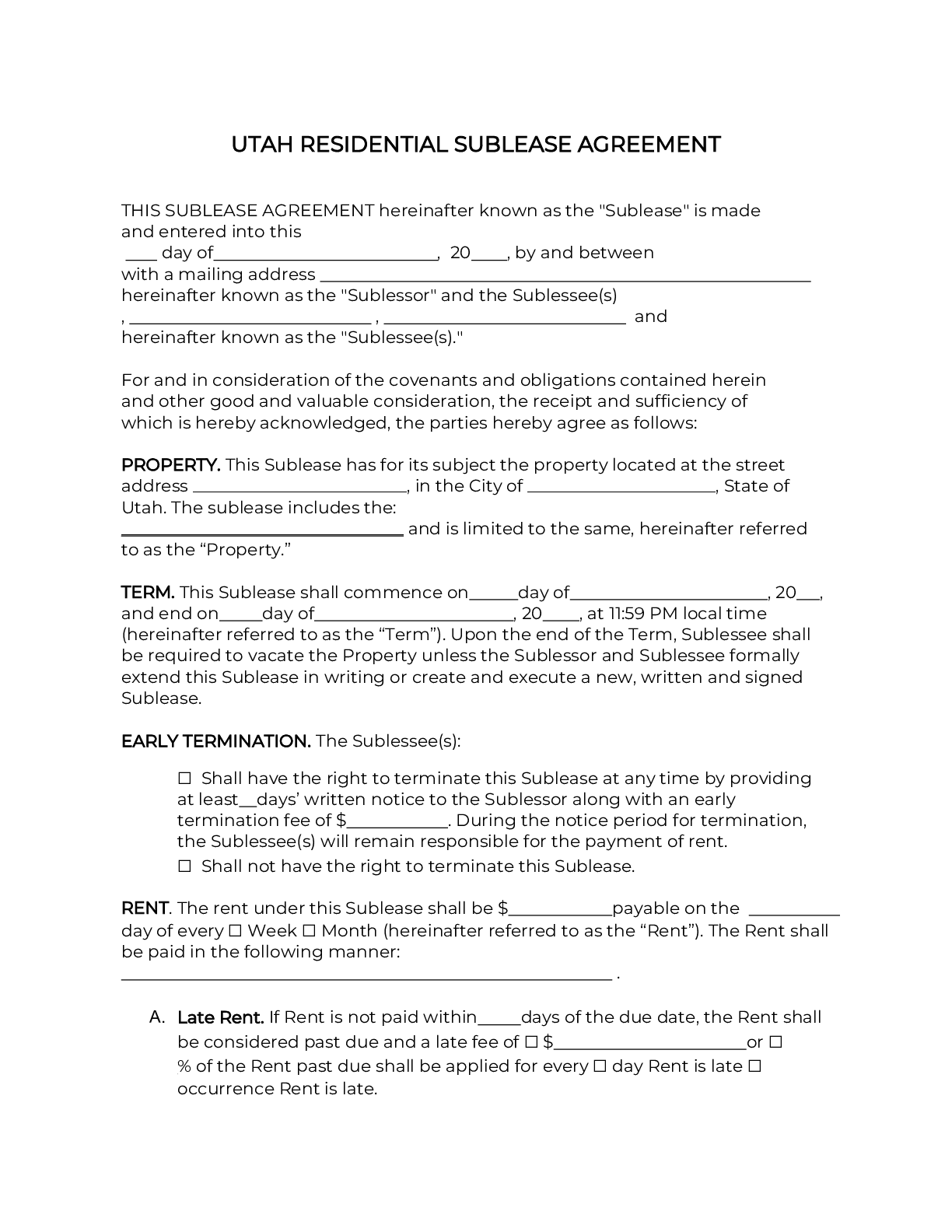
A Utah sublease agreement is a legal contract where a tenant ("sublessor") rents (“subleases”) property to a new tenant (“sublessee”), usually with the landlord’s permission.
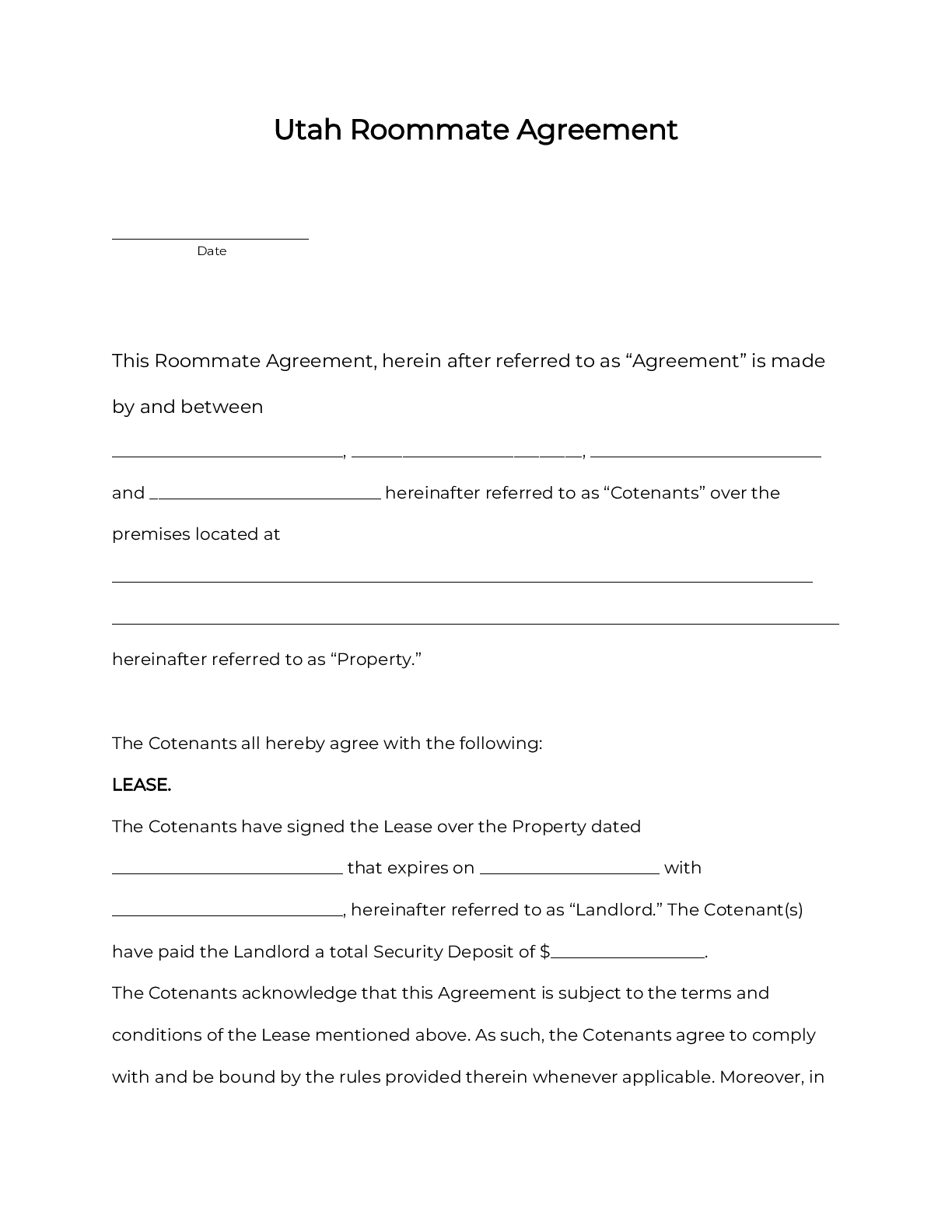
A Utah roommate agreement is a legal contract between two or more people (“co-tenants”) who share a rental property according to rules they set, including for things like splitting the rent. This agreement binds the co-tenants living together, and doesn’t include the landlord.
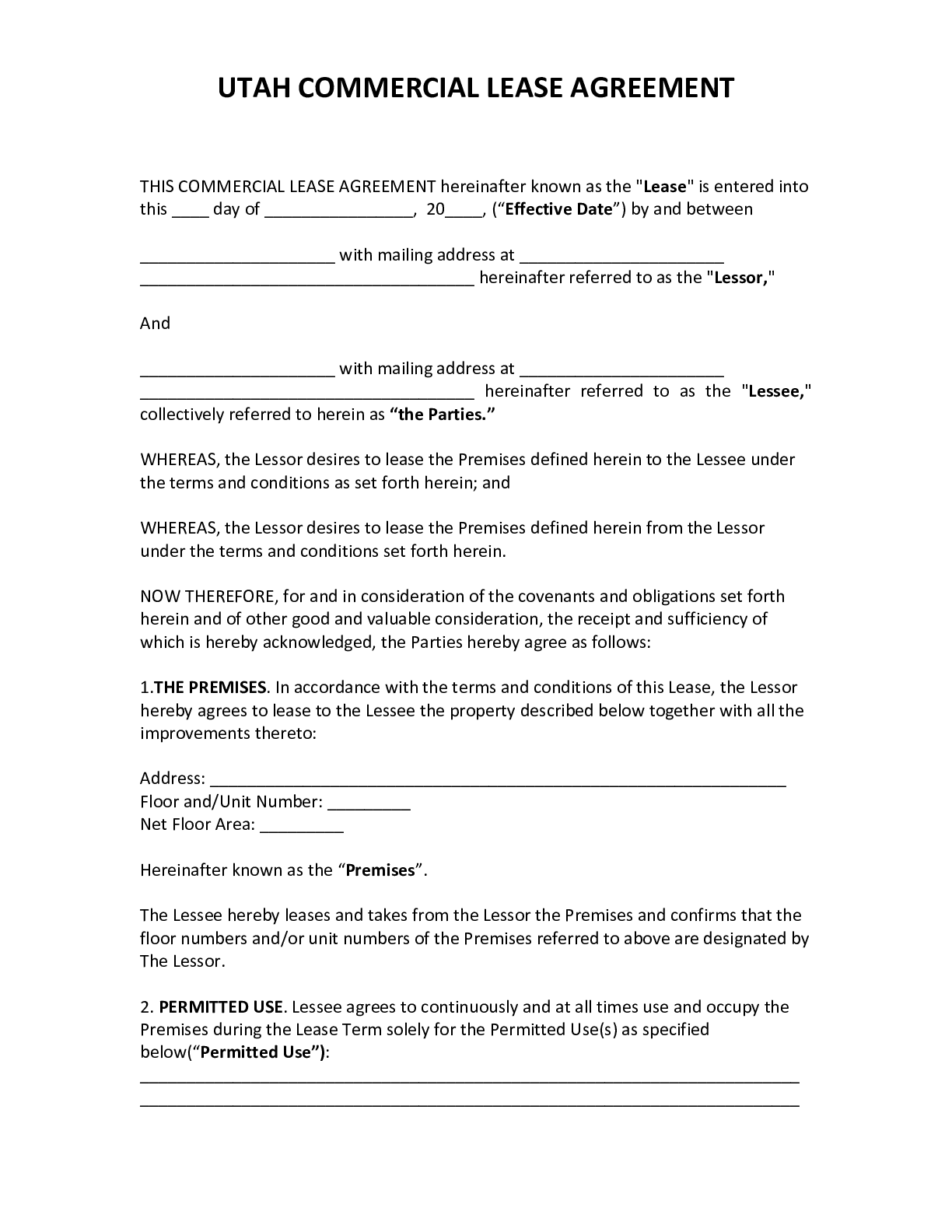
A Utah commercial lease agreement is a legal contract arranging the rental of commercial space between a landlord and a business.
- Utah Association of Realtors Lease Agreement With Option for Purchase – this form is for use by members of the Utah Association of Realtors only. It is in common use in Utah for purchase-optioned residential rentals. This template outlines both leasing terms (landlord disclosures, lease payments, late charges, etc.) and purchasing terms (purchase price, fee obligations, notice of intent, etc.).
Utah Required Residential Lease Disclosures
- Landlord’s Name and Address(required for all leases) – Utah requires that landlords provide their contact information or that of an authorized agent. This ensures reliable communication in situations requiring legal notice.
- Move-In Checklist(required for all leases) – Utah landlords must provide a move-in checklist that inventories the current condition of the rental property. This helps prevent abuses related to deduction from the security deposit.
- Methamphetamine Contamination Disclosure(required for some leases) – Utah landlords renting properties with any potential methamphetamine contamination must disclose this fact and provide information about active remediation efforts. A contaminated unit can’t be rented without remediation.
- Lead-Based Paint Disclosure(required for some leases) – For any property built before 1978, federal law requires that a Utah residential lease must contain a lead-based paint disclosure with an EPA informational pamphlet, plus notice of any lead hazards on the property.
To learn more about required disclosures in Utah, click here.
Utah Landlord Tenant Laws
- Warranty of Habitability – Utah landlords may only rent out property that is habitable, which means it provides basic health and safety features like heat, plumbing, and electricity. If there are any issues with the property, the landlord must make repairs within 1-10 days, depending on the type and severity of issue. Failure to repair lets the tenant end the rental agreement (called “rent abatement” in Utah), or repair and deduct, depending on specifics in the written notice. Tenants can also recover their attorney fees.
- Evictions – Utah landlords may evict tenants for reasons including rent default, lease violations, or illegal acts. Landlords must provide notice to pay or quit, depending on the type of eviction. Most Utah evictions take 1-4 months.
- Security Deposits – Utah does not place a maximum cap on the amount of a security deposit. Any unused portion of a security deposit must be returned to the tenant within 30 days.
- Lease Termination – Utah tenants can break a month-to-month lease with 15 days of advance notice. A fixed-term lease can’t be terminated early without active military duty, landlord harassment, uninhabitable property, or domestic abuse.
- Rent Increases and Fees – Utah has no maximum cap for a rent increase, or any advance notice requirement before an increase. Most fees likewise have no statewide cap, except for return check fees which are limited to $20 for insufficient funds plus $35 for outstanding charges.
- Landlord Entry – Utah landlords may enter rental property for purposes reasonably related to the rental, like repairs and inspections. They must provide at least 24 hours of advance notice before entry, unless there’s an emergency.
- Settling Legal Disputes – Utah allows landlord-tenant disputes in small claims court when the amount in controversy is under $10,000. Small claims is mostly limited to monetary issues, so eviction must be filed in regular courts.
To learn more about landlord tenant laws in Utah, click here.








